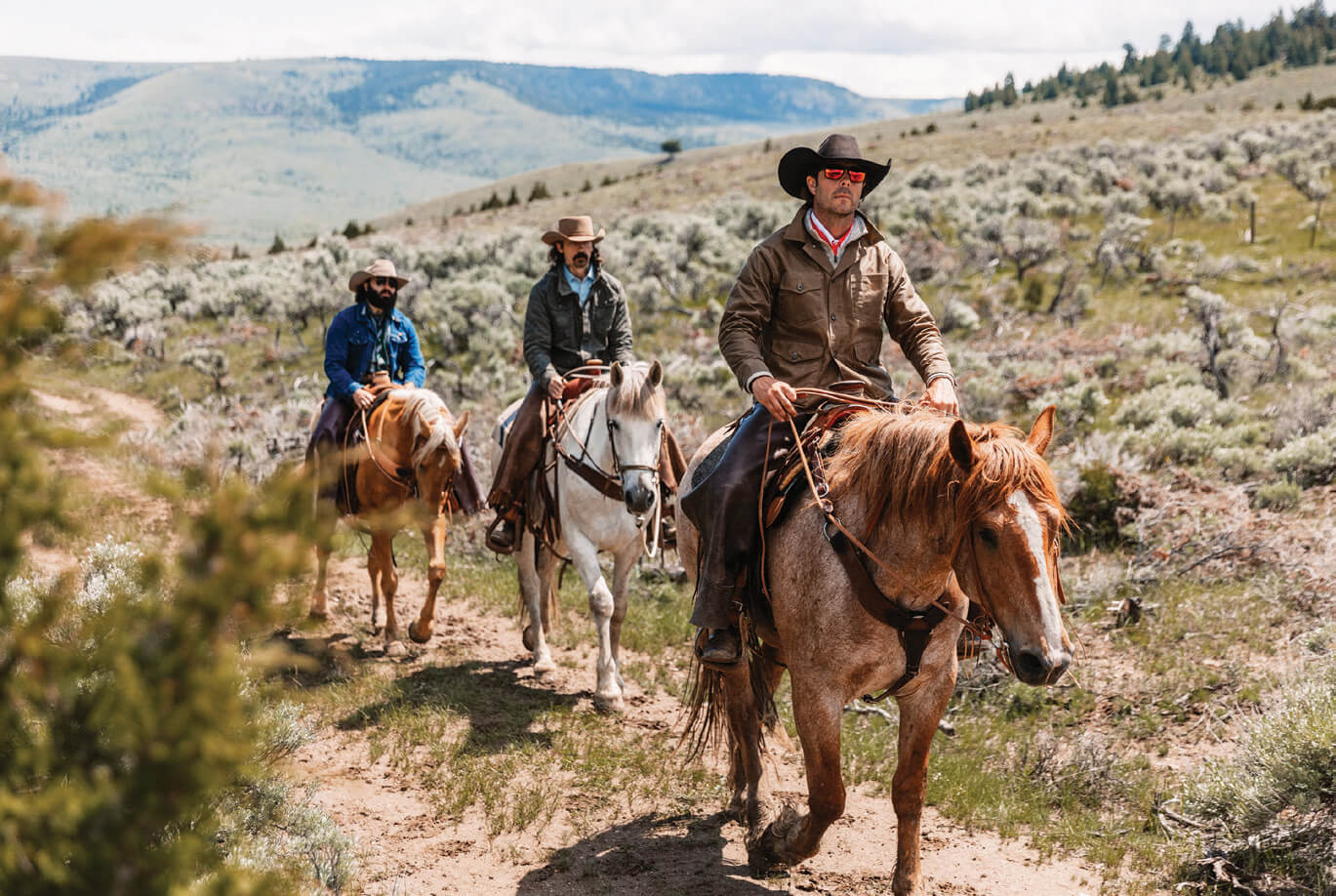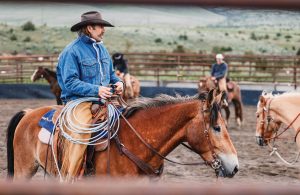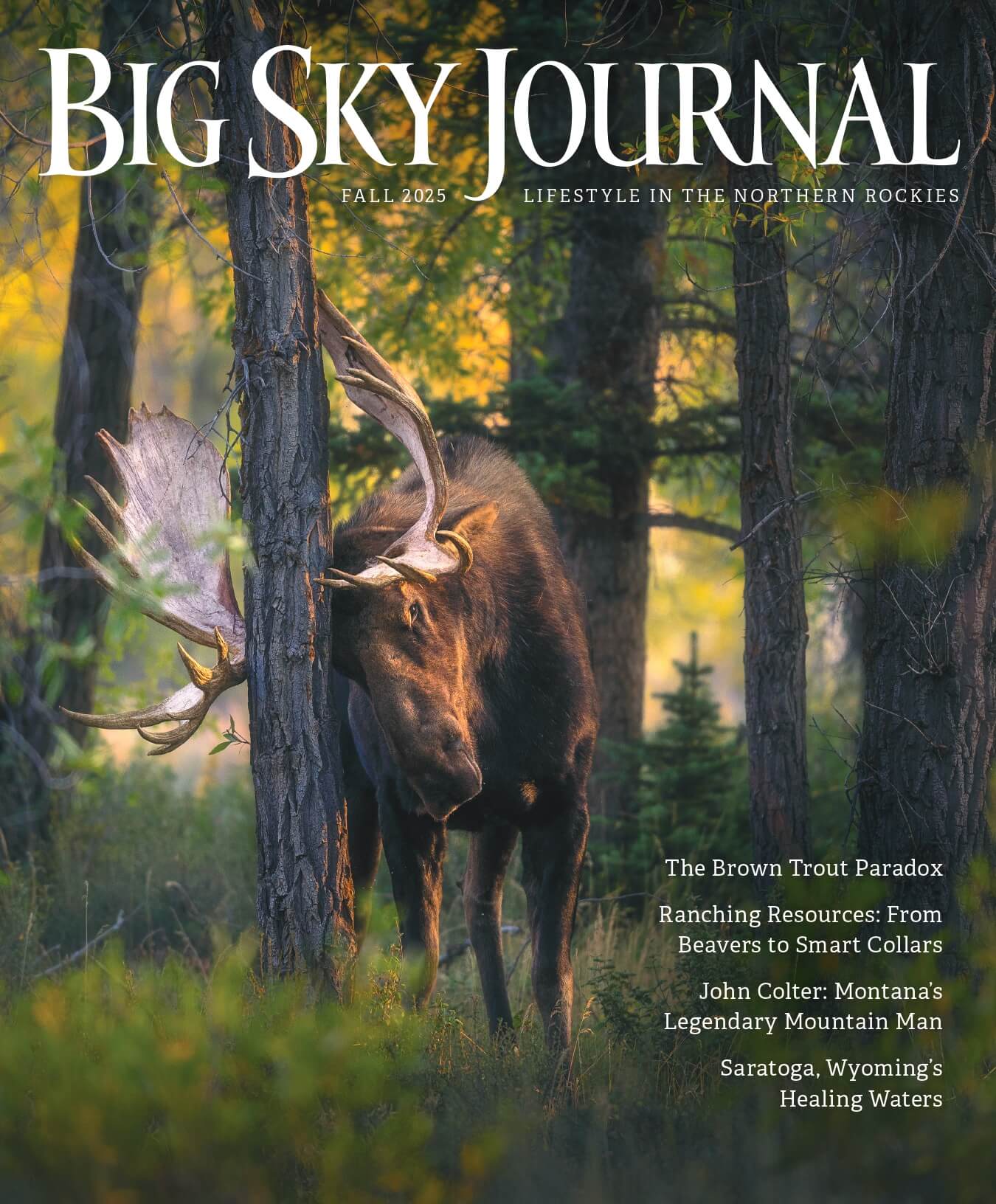
29 Sep Round Up: Nonprofit Spotlight: Heroes and Horses
According to the U.S. Department of Veterans Affairs “2022 National Veteran Suicide Prevention Annual Report,” since 2001 the rate of suicide among veterans has remained nearly double that of civilians, with an average of 6,000 veterans taking their lives each year. Despite the VA’s changes in approach, funding, coordination, and implementation, the numbers have held steady.
“We’ve done a great job of turning civilians into soldiers, but fundamentally failed at helping soldiers transition back into civilians,” says Heroes and Horses founder and CEO Micah Fink.

H&H IMAGES/GRACE PAULEY
By excavating and acknowledging the flaws throughout struggling mental healthcare and veterans’ services, Fink and his team have helped veteran after veteran achieve what many had given up hope of ever realizing: healing. The dedicated staff, volunteers, donors, and horses that bring the program to an increasing number of veterans each year at the Double H Ranch in southwest Montana are working to “un-program the programmed.” The solution doesn’t include medication, traditional psychotherapies, or a clinical setting. The solution is self — and the wild expanse of Big Sky Country in which to rediscover it.
Here, Fink describes Heroes and Horses and the program’s whole-person approach that’s empowering the rebirth of whole people, indeed.
Big Sky Journal: Tell me about Heroes and Horses’ inception. What instigated its formation and connection with horses and the Montana backcountry?
Micah Fink: Heroes and Horses is essentially the culmination of my healing journey. After a career in special operations spanning 15 years, I found myself lost, hurting, and facing “solutions” that, statistically, were causing more harm than good. It felt like I was watching an apocalypse as one incredible human after another succumbed to isolation, marginalization, and addiction.
I moved to Montana on the tail end of my time as a paramilitary contractor and met some ranchers and cowboys who opened my heart to horses. Initially, it was challenging and chaotic. I began shoeing, riding colts, packing horses, and getting some hard lessons from fast-talking horse hustlers, hay traders, and a few crooks. These were the exact lessons I needed at that time in my life; they were the catalyst. I invited some struggling veterans I’d served with out to the mountains and, on that trip, I came to the true realization that it’s struggle that gives everything in life value and it was the easy way that was killing us. So, it began.
BSJ: Describe Heroes and Horses’ whole-person solution and how it differs from traditional methodologies and approaches to veterans, mental health, reintegration, and needs-based interventions.
Fink: Over the 41-day program we deconstruct identity — self-conceptualizations we’ve agreed to, our judgments of situation and circumstance, victimizations — to gain awareness of our reactive power and dominion over it. Reclaiming that power can only occur when participants face their obstacles, learning and growing from the vulnerability and challenge. We aren’t here to “help” people, per se, but rather to give them the tools to help themselves. It’s not about changing people; it’s about awakening the wisdom that is latent inside them.
It’s a process that involves horses, mountains, elemental teachers like heat and cold, digital detox, various ancient practices, fitness, and a new relationship to food through our food program, The Anti-Inflammatory Farmacy. There are no quick fixes — pain is an inevitability in life — but suffering is optional.
BSJ: How do you know your program has been successful, and what does that look like for a veteran completing the work?
Fink: What does it mean to be successful? Acquisition? Degrees? Military honors? Owning a farm? Being a teacher? Success is subjective, and it’s for the individual to determine its nature: It’s their life, not mine. That said, there is a baseline that most would agree provides the core of a life well lived. When an individual realizes that this life is the purpose and it’s a gift, then the experiences he or she faces become the curriculum for personal growth, transformation, healing, and self-discovery.
We offer a 180-degree approach: Look at what the world is doing, and then do the opposite. That’s where you will find success. If an individual makes just one degree of course correction every day during their time at the Double H Ranch, that’s 41 degrees toward the destination. When a person stops living on the surface — stops just existing — the changes expand exponentially. Our latest program impact report — prepared in partnership with Montana State University and FMG Leading — provides a clear testimonial of our participants’ hard-earned successes.
BSJ: What is the process for applying to the program? What are the costs, expectations, and numbers served?
Fink: We have a comprehensive application process, a gateway that requires some uncomfortable introspection: If participants can’t be honest with themselves, they won’t do well here; they’re just not ready. Completed applications are then evaluated by a team of veteran graduates and staff. If we need more information, we call to gather it. After acceptance, participants enter the War on Ignorance communication strategy. It’s an eight-week prep course of peer-reviewed research on a wide spectrum of subjects, providing important information on the modalities and methods we use here.
Thirty-two students are selected for each program session, with 10 on standby. Costs are covered 100 percent, from the head down to the boots. Indirect public support, grants, family foundations, and incredible people from around the world make this possible. It costs $38,000 to put a student through the program. Our Stay the Course class continues after graduation, with each class staffed by two graduates.
BSJ: How has the approach and program evolved over the years, and what are your hopes for the future?
Fink: Each year we shift, as self-work and program experience offers new insight into the human condition, into what works and what doesn’t. But one thing that will never change is our purpose. Our core values remain timeless.
My hope, beyond my continued work with this program and these incredible veterans, is for a thought revolution. It’s undeniable that we are in a time of great upheaval and transformation. If we could build a network of organizations that want to align, share, and give away what they have learned to empower each other; if we could create supportive communities intent on innovations that improve the livelihood for all; if we could prioritize work of significance … we could revolutionize life as we know it.
For more information about Heroes and Horses, visit heroesandhorses.org or call (406) 946-2645.




No Comments